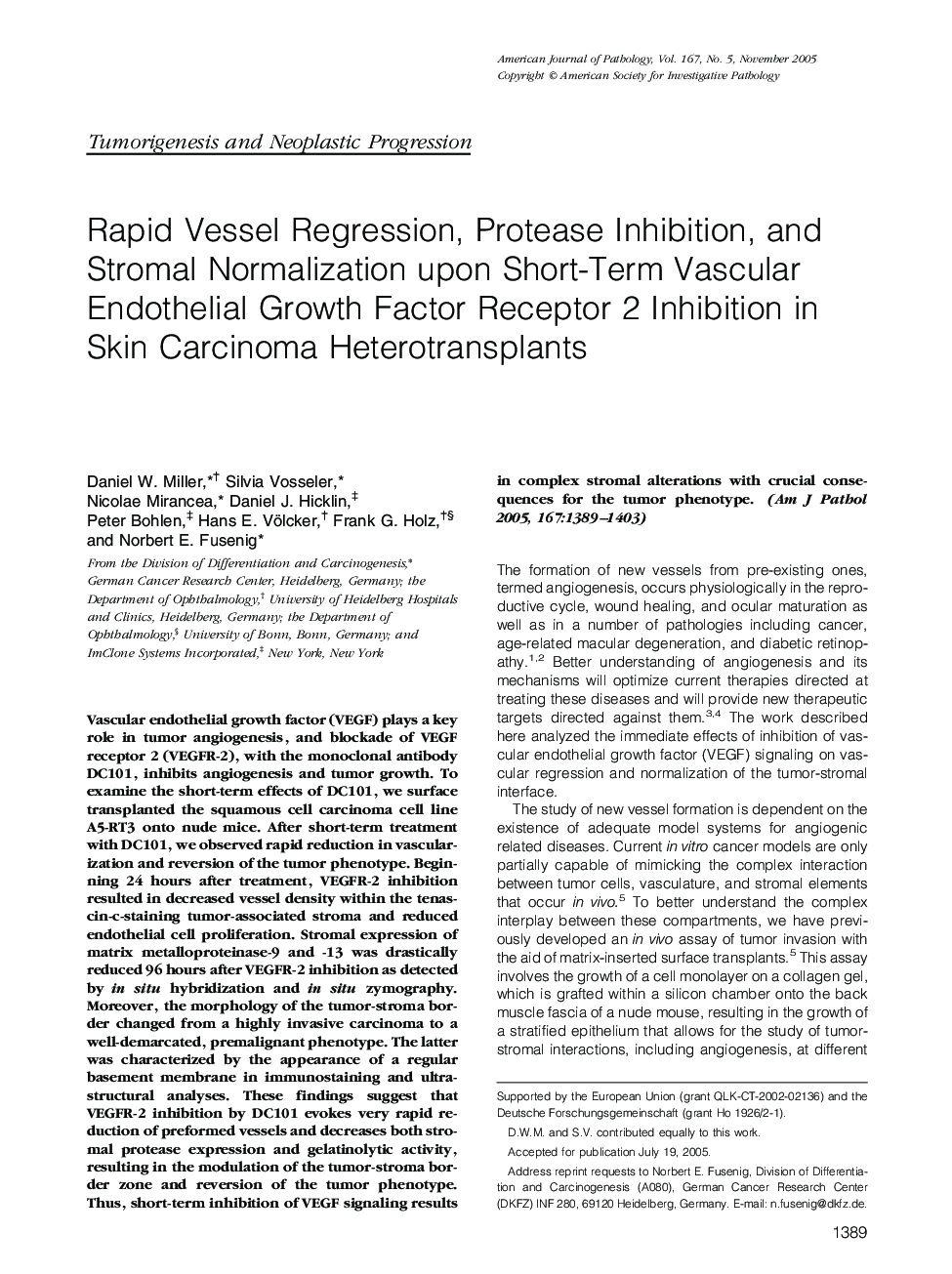| Article ID | Journal | Published Year | Pages | File Type |
|---|---|---|---|---|
| 9943220 | The American Journal of Pathology | 2005 | 15 Pages |
Abstract
Vascular endothelial growth factor (VEGF) plays a key role in tumor angiogenesis, and blockade of VEGF receptor 2 (VEGFR-2), with the monoclonal antibody DC101, inhibits angiogenesis and tumor growth. To examine the short-term effects of DC101, we surface transplanted the squamous cell carcinoma cell line A5-RT3 onto nude mice. After short-term treatment with DC101, we observed rapid reduction in vascularization and reversion of the tumor phenotype. Beginning 24 hours after treatment, VEGFR-2 inhibition resulted in decreased vessel density within the tenascin-c-staining tumor-associated stroma and reduced endothelial cell proliferation. Stromal expression of matrix metalloproteinase-9 and -13 was drastically reduced 96 hours after VEGFR-2 inhibition as detected by in situ hybridization and in situ zymography. Moreover, the morphology of the tumor-stroma border changed from a highly invasive carcinoma to a well-demarcated, premalignant phenotype. The latter was characterized by the appearance of a regular basement membrane in immunostaining and ultrastructural analyses. These findings suggest that VEGFR-2 inhibition by DC101 evokes very rapid reduction of preformed vessels and decreases both stromal protease expression and gelatinolytic activity, resulting in the modulation of the tumor-stroma border zone and reversion of the tumor phenotype. Thus, short-term inhibition of VEGF signaling results in complex stromal alterations with crucial consequences for the tumor phenotype.
Related Topics
Health Sciences
Medicine and Dentistry
Cardiology and Cardiovascular Medicine
Authors
Daniel W. Miller, Silvia Vosseler, Nicolae Mirancea, Daniel J. Hicklin, Peter Bohlen, Hans E. Völcker, Frank G. Holz, Norbert E. Fusenig,
